DAY 2, MAY 7, 2022, Saturday:
7.10 am AIR FRANCE flight to reach Barcelona at 9 am. OK Mobility Car rental shuttle to the car rental. Picked up our rental and drove to Tarragona
SIGHTS : Paseo Arqueológico (Murallas [Roman walls]), Roman Circus, Cathedral, Amphitheater
FLIGHT TO BARCELONA
Got up at 5 am, had a couple of the tortillas. Then walked out to the terminal 3 CD3VAL station and reached our checkin terminal 2. We waited a couple of min for airfrance counters to open, then realized that we have to do everything ourselves. We needed to check in 1 bag, got the tag through the self help machines, tied the tag to the bag and dropped it on the belt. Had our boarding passes printed and went through security. . Confirmed we were in the right line... it's not international but schengen.
When we were boarding the guy pulled up my son and asked him to gate check his bag and tagged it. My bag was much smaller but he tagged mine also despite my protests. We thought it was unfair as people with bigger bags were let through. We had already paid extra for the checked bag
We walked into the plane with our jackets on the bag. Son went in but i was stopped for gate checking by the flight attendant as the tag was showing. I said 'Please, this is so unfair. It's a tiny bag, i can keep it under the seat if need be. There's my tablet and electronics inside. I'm not gate checking this'. They said in French, OK, We'll just take off the tag and my bag was safe! It was a short flight. They served Classic French Madeleines [butter cakes], juice and water.
DRIVE TO TARRAGONA
Landed in Barcelona. There was a short line for showing the QR code obtained after filling the HEALTH FORM. https://www.spth.gob.es/
we collected our checked bag and From Barcelona airport Arrivals we walked all the way to Parking G and further down where their shuttle was waiting. We got upgraded , Peugeot with just 3200km on it. 3000 km was allowed for 10 days, we drove 2000 km. No entry into other countries allowed, we were happy with scenic Spain... no regrets on any coun. We took pics of the odometer and the car and started off at 10.30. We did not want to let google decide the shortest/fastest route. We wanted some coastal route for scenery and had had plotted a roite on google maps.
A road for lovers of hairpin bends and cliff-top views, the C-31 runs from Castelldefels to Sitges. Its proximity to the coast means fantastic views are guaranteed, but remember to drive very carefully.
Barcelona – Sitges: around 40 kilometres.
Sitges – Tarragona: around 75 kilometres. The route continues along the AP-7 motorway to Tarragona. May be click on this link at airport when there is wifi.
https://goo.gl/maps/cH16HxtdMYnBF89D9 96 km, 2 hrs
We forgot to click the link in the airport. So we had to put in Castelldefels
Instead of hitting up Sitges son took a wrong fork/exit and we speeded through tunnels and paid 7 euro toll.
We wasted almost an hour at a traffic jam near Tarragona... don't know if it's usual,
Hostal Noria, Plaça de la Font
reached our hotel. Hostal Noria Plaça de la Font, in the heart of the historic quarter. Location was fantastic, right in the old town. The room had an old world charm. It was spacious, with a beautiful wardrobe. There’s also a balcony. Very nice bathroom.
Rather than using the expensive parking located opposite to the hotel (€18), we used an underground parking that is located close to the Muralles which is priced at €4.5 per day. All major attractions were close by. For example, the basilica was just 300 m away. The Roman walls, the Roman Circus, balcony promenade and the amphitheater were within walking distance. Supermarket is close by as well. CARREFOUR 8.30 am -9 pm, sunday closed, 300 m from Noria
SPAR 180 m from noria, 9-10 pm, sunday 9-3pm
Parking Av. Catalunya Av. Catalunya, 7, 43002 Tarragona, Spain, 5 euros /day, 550 m, but there are stairs.https://goo.gl/maps/9oTDqNoCkF6nKRK79
Driving 850 mhttps://goo.gl/maps/Bi4GrxHxprhTMo1o9
TARRAGONA SIGHTS
Paseo Arqueológico (Murallas), SATUR 10-21
€3.30: Price per venue. The Tarragona History Museum (MHT) is comprised of: Model of Roman Tarraco, Casa Castellarnau Museum, the Walls (Archaeological Promenade), the Praetorium and Roman Circus, the Roman Amphitheatre, the Local or Colony Forum and Casa Canals.
Pass to MHT venues (see availability):
• €7.40: Pass to Roman MHT venues (the Walls -Archaeological Promenade, the Praetorium and Roman Circus, the Roman Amphitheatre, the Local or Colony Forum). Valid for one year.
Shaded by cypress trees, the Paseo Arqueológico is a pleasant walking path at the base of the Muralla Romana (Roman Wall) that was built from the 3rd to the 2nd century BC and originally enclosed the entire ancient town. Several sections are still intact, including one stretch that extends for 1,000 meters with heights ranging from three meters to 10 meters in places.
Three towers of the wall have also survived: the Cabiscol Tower, Minerva Tower, and Arzobispo Tower.
The Paseo Arqueológico begins where the Vía del Imperio (Imperial Way) runs into the Puerta del Rosario, an entrance gate that dates from around the 5th century BC. Also known as Las Murallas (The Walls), the Paseo Arqueológico walking path winds through a Mediterranean garden, nestled in between the ancient Roman Wall and the more modern counter-wall. enjoy soaking up the legacy of Tarragona's two-thousand-year history while appreciating scenic views from each end of the garden. Address: Avenida Catalunya, TarragonaThe amazing ancient defense structure is distinguished by its cyclopean stone masonry of massive irregularly shaped blocks. Local workers were employed to build the wall, and many of the stones bear Iberian masons' marks.
Catedral de Tarragona
The main facade features an early 14th-century Gothic portal with highly detailed sculptures, and a stunning rose window with openwork tracery.10-14, 15-19, 5 e[300 m walk, Pla de la Seu]
built in the 12th century on the site of a 10th-century Moorish mosque, and its construction continued for centuries after. With its blend of architectural styles, the building is one of the most splendid examples of the transition from Romanesque to Gothic.
The interior, with three naves on a Latin-cross plan, creates an impression of great austerity. An octagonal dome over the crossing adds to the inspiring ambience, and in the transepts are exquisite stained-glass windows created in 1574.
In the Capilla Mayor (Central Nave) centers around a marvelous 15th century reredos , considered a masterpiece of Catalan Gothic carved stonework.
Intricately crafted from polychromatic alabaster, the piece incorporates a trilogy of statues that represent the Virgin and Child, Saint Thecla, and Saint Paul.

We asked for directions and a docent at the church led us on.
ROMAN CIRCUS
Located between Via Augusta and the provincial forum, Tarragona's circus was once used to hold horse and chariot races. An elongated structure measuring 325 by 115 metres, its original capacity has been estimated at 30,000 spectators. The complex was built in the 1st century. Unusually, it was located within the city limits and is thus endowed with several atypical architectural features. It is considered one of the best-preserved circuses in the West, although some of the original structure remains hidden under old 19th-century buildings. The Praetorium is a Roman-era tower that once housed the stairs that connected the lower city to the provincial forum by way of the circus, to which it is connected by means of underground passageways. It stands at one of the corners of the vast rectangle of the provincial forum square. In the 12th century, it was transformed into a palace for the monarchs of the Crown of Aragon. It was subsequently used as a prison.

Roman Amphitheater Sat 10-21
Vestiges of classical Roman buildings are dotted all over Tarragona, which after Mérida is the second most important archaeological site in Spain. The Roman Amphitheater, along with other ancient Roman ruins in the area, is designated as a UNESCO World Heritage Site.
An oval structure built in the 2nd century overlooking the sea, its stands were carved directly out of the underlying bedrock. The amphitheatre is 109.5 metres long by 86.5 metres wide and can hold up to 14,000 spectators.
In its day, it was the scene of fights between gladiators and against wild beasts, as well as public executions. In the year 259 A.D., the Bishop Fructuoso and his deacons Augurio and Eulogio were burned alive within its confines. In the early 6th century, a Visigoth basilica was built on the site, which was eventually replaced by the mediaeval Santa Maria del Miracle (Our Lady of the Miracle) church.
Built on a hillside overlooking the Mediterranean Sea, the amphitheater dates back to the second century AD during the reign of Emperor Augustus.
Address: Parc de l'Amfiteatre Romà, Tarragona
Balcón del Mediterráneo
At the south end of the broad tree-lined Rambla Nova, Tarragona's main street, is the Balcón del Mediterráneo. From this spacious terrace, tourists can admire stunning views of the Mediterranean Sea and El Milagro Beach.
We went back to the hotel, bought groceries at the SPAR.

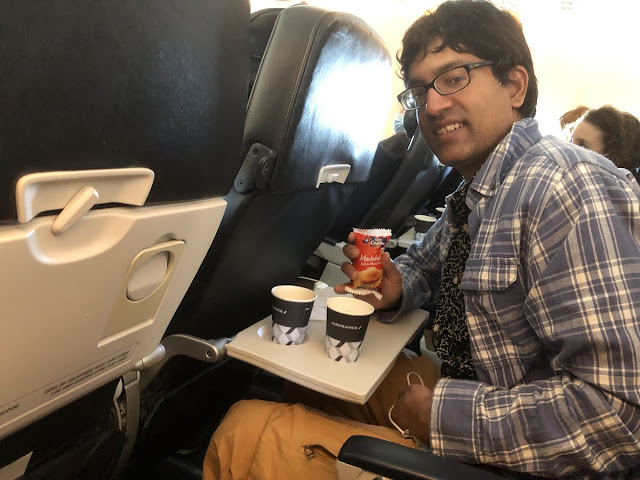

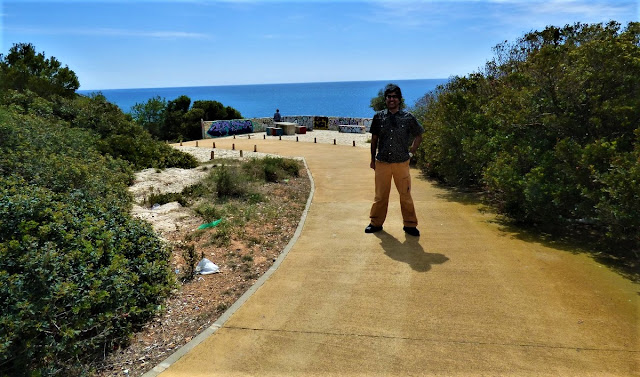






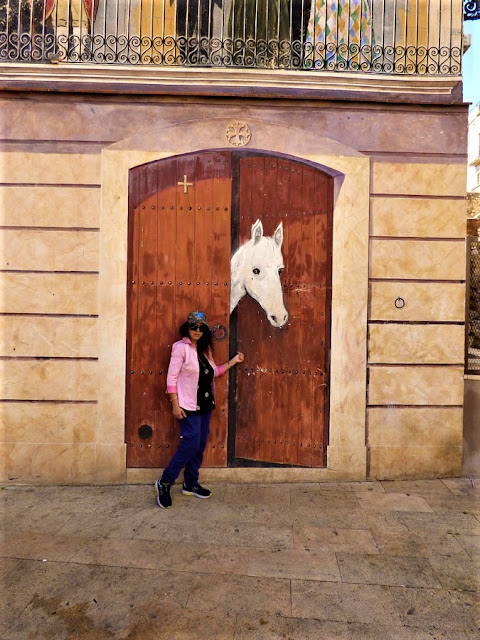





























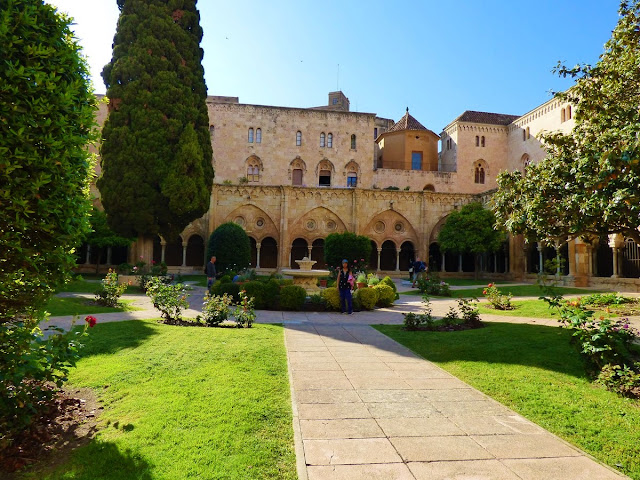


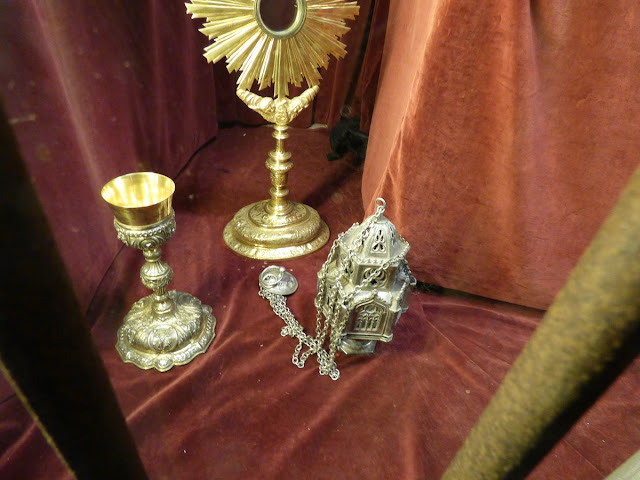











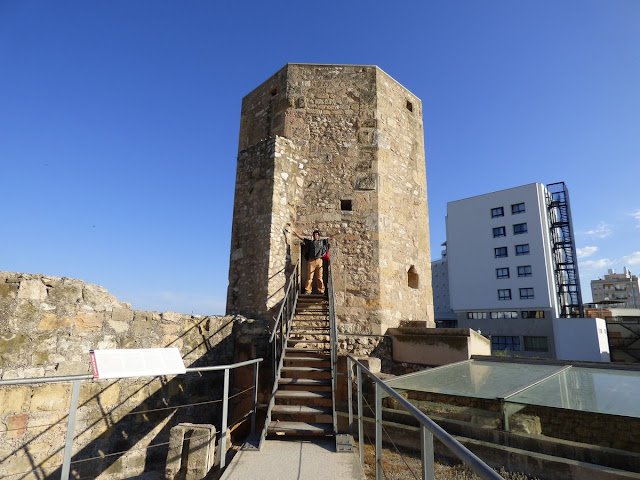

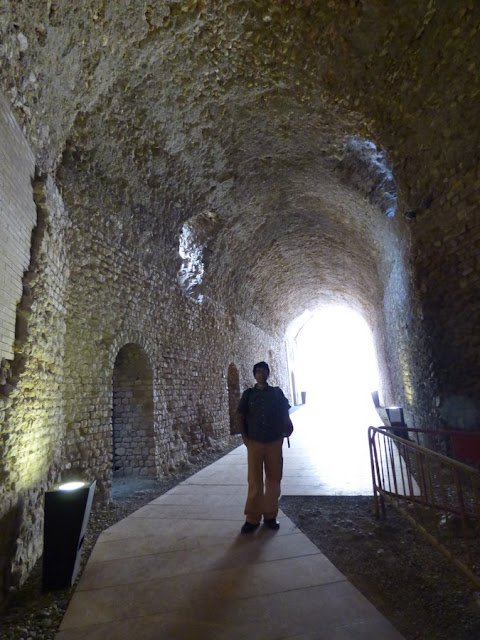





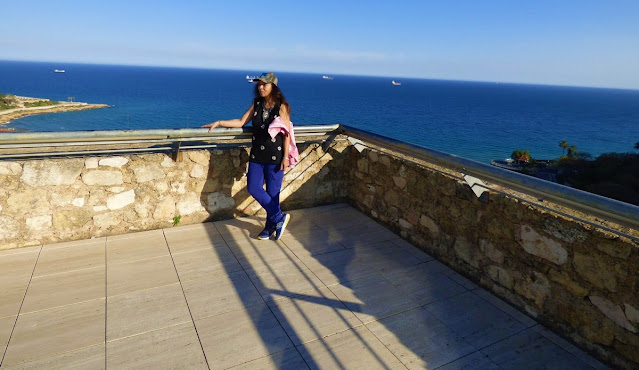











No comments:
Post a Comment